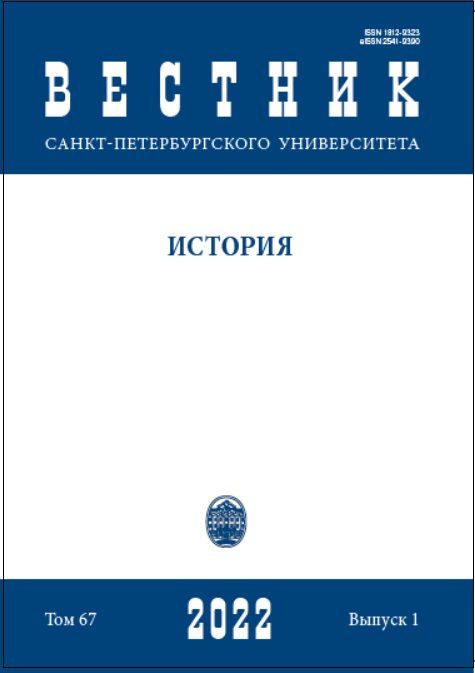The Lenaian Festival at Classical Athens in Sociocultural Context
DOI:
https://doi.org/10.21638/11701/spbu02.2022.106Abstract
This article covers the Lenaia (Λήναια) which was an important part of social and political life in Classical Athens. Our understanding of how dramatic agones in Athens were organized primarily comes from the accounts of the Great (City) Dionysia, while other festivals have been studied less thoroughly. The unique nature of the Lenaia manifested itself both in the purely theatrical and in the social aspect of the event. Regarding the leading theatrical genre, tragedy, the Lenaia remained in the shadow of the City Dionysia, playing the role of the “small stage”. The comic agones at the Lenaia, on the other hand, were staged to a very high standard, to which the social aspect further contributed, since the audiences at the Lenaia were much more down-to-earth, animated and active that at the Dionysia. The Lenaia was held during the coldest part of the year. It was precisely in winter when peasants from different parts of Attica, who constituted the majority of the Lenaian audience, were less busy with farming; unlike the Great Dionysia, the Lenaia was not attended by foreigners. The Lenaian festivals were held on a less lavish scale, their organization was entrusted to less significant magistrates, and their performances were much less costly than the Dionysian ones. The Athenians must have considered the Lenaia as a predominantly peasant festival, inaccessible to outsiders. Lenaian performances were but little affected by “political correctness”, their earthy humour at times evolved into biting political satire. All of the above created a special atmosphere that became the background of Aristophanes’ best comedies.
Keywords:
Ancient Greece, Athens, Lenaia, theatre, religious festivals, Aristophanes
Downloads
References
Downloads
Published
How to Cite
Issue
Section
License
Articles of "Vestnik of Saint Petersburg University. History" are open access distributed under the terms of the License Agreement with Saint Petersburg State University, which permits to the authors unrestricted distribution and self-archiving free of charge.





